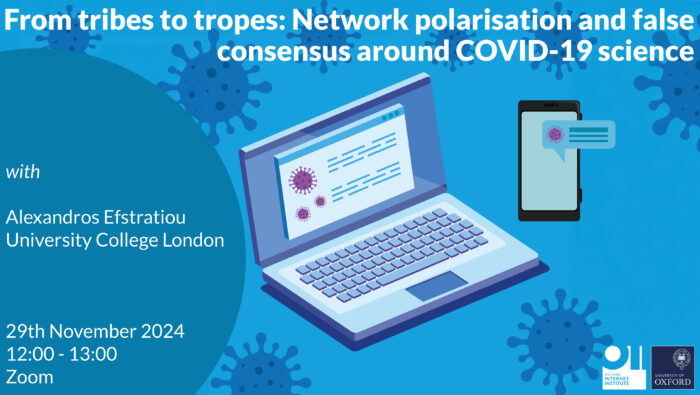12:00 - 13:00,
Friday 29 November, 2024
Zoom

About
This event is online only.
The COVID-19 pandemic was marked by a slew of misinformation around vaccine efficacy, non-pharmaceutical interventions, appropriate prophylactic and therapeutic treatments, and more. Though much of this misinformation has been attributed to low-quality sources, scientific findings themselves may have been weaponised to this end. In this talk, we cover recent work showing that COVID-19 science was vastly misrepresented on the Twitter platform, owing mostly to a large misinformation cluster that engaged in selective citation of scientific papers. Alongside this false consensus, we analyze the temporal prominence of the pro- and anti-science clusters, and we uncover the adaptation of decades-long anti-vaccination tropes to the COVID-19 context.
Alexandros Efstratiou is an incoming Postdoctoral Fellow at the University of Washington’s Center for an Informed Public (UW CIP). His doctoral work examined the dynamics of intergroup and intragroup polarisation on online social media, with a focus on how these relate to the propagation of misinformation and hostility in these spaces. As part of his research agenda, he also examines social psychological phenomena at scale, as well as metascience and science communication, using computational social science tools. His current research focuses on outgroup misperceptions and outgroup-directed misinformation.
Speaker

Dr Alexandros Efstratiou
Postdoctoral Fellow , University of Washington
Alexandros is an incoming Postdoctoral Fellow at the Center for an Informed Public, University of Washington. His doctoral work examined the dynamics of inter & intragroup polarisation on social media